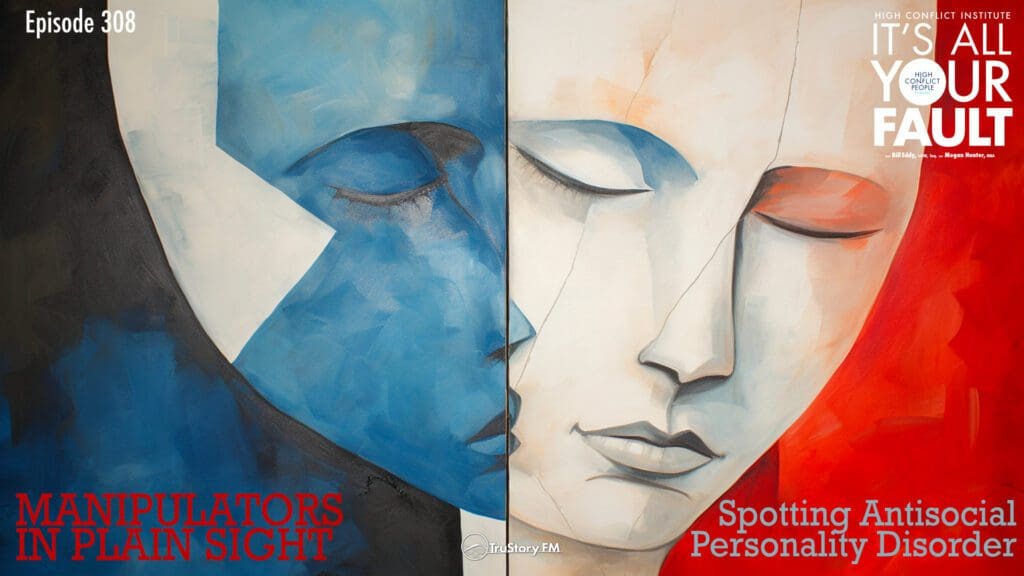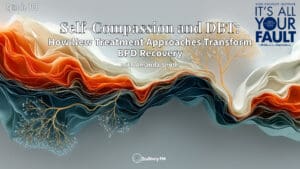Podcast hosts Bill Eddy and Megan Hunter tackle listener questions about antisocial personality disorder. Bill clarifies common myths.
Recognizing Antisocial Patterns in a Spouse
The first section covers a listener asking how to respond to a psychiatrist claiming their spouse doesn’t have antisocial traits. Bill explains professionals can get manipulated by antisocials’ victim stories. Key antisocial patterns include blaming, aggression, rule-breaking, and lying. Make your own assessment using pattern awareness.
Seeing Antisocial Personalities in Generations of Family
Next, they discuss a listener noticing antisocial patterns across generations of their family. Bill confirms antisocial personality tends to run in families due to genetic factors. However, early childhood environment plays a role too. Having one antisocial family member doesn’t mean all siblings will be.
Comparing Antisocial and Narcissistic Patterns
Finally, Bill contrasts antisocial personalities from narcissistic patterns. Antisocials straightforwardly lie while narcissists exaggerate. Both invest in false public images. However, antisocials fabricate entire stories while narcissists distort real events.
Key Takeaways:
- Antisocial doesn’t mean shy or introverted
- Lying, aggression and rule breaking are common
- The genetic link is strong but environment plays a role
- Narcissists exaggerate while antisocials fabricate
- Maintain healthy skepticism of far-fetched stories
Understanding personalities helps respond cautiously. Don’t assume you can change them. Focus on protecting yourself. Manipulation knows no limits or social status. Maintain healthy skepticism.
Bill busts myths about antisocial personalities. Learn to recognize concerning patterns and behaviors to protect yourself.
Links & Other Notes:
- COURSES
- BOOKS
- ARTICLES
- Our website: https://www.highconflictinstitute.com/
- Submit a Question for Bill and Megan
- All of our books can be found in our online store or anywhere books are sold, including as e-books.
- You can also find these show notes at our site as well.
Note: We are not diagnosing anyone in our discussions, merely discussing patterns of behavior.











